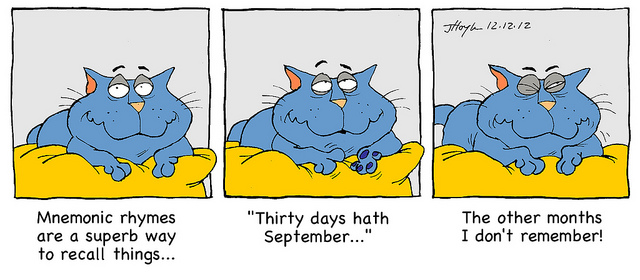Listening Comprehension in a Foreign Language – 12 Ways to Improve It

Improving listening comprehension in a foreign language is, without a shadow of a doubt, one of the most challenging skills to master. The amount of time needed to understand a language is enormous. Unfortunately, not everyone succeeds in this field.
Not everyone reaches the finish line and has the pleasure of saying, "I understand most of everything I hear."
On the contrary, the bodies of poor souls who surrendered along the way colorfully decorate the entire length of the route. Everyone has their theory of why they failed.
"My ears are too small."
"I can't listen to German for long because I start to sob."
And who knows, maybe the above is partially true. However, these reasons are not as important as the list you are about to see.
Here are 12 reasons why you have trouble understanding a foreign language.
LISTENING COMPREHENSION IN A FOREIGN LANGUAGE - 12 COMMON ISSUES AND WAYS TO SOLVE THEM
Understanding a spoken word is complex. It's affected by many factors.
LISTENING COMPREHENSION IN A FOREIGN LANGUAGE - 12 COMMON ISSUES AND WAYS TO SOLVE THEM | |
|---|---|
1. Limited vocabulary | 7. Lack of concentration |
2. Problems with pronunciation | 8. Problems with interpretation/culture |
3. Trying to understand everything | 9. Problems with natural (i.e. colloquial) speech |
4. Insufficient listening practice | 10. No visual support |
5. Too fast a pace | 11. Passive listening |
6. One-time listening to recordings | 12. Insufficient knowledge of grammar |
1. LIMITED VOCABULARY
Insufficient knowledge of vocabulary is one of the main culprits. No wonder you have trouble understanding if your vocabulary is very limited! As you listen, each word and phrase at your disposal becomes your foothold.
Think of it as a puzzle - the more elements that fill the outline of an image, the easier it is to see what the picture is. Similarly, when listening, each subsequent word allows you to understand better what the general meaning/message of a given conversation or recording is.
There are two significant milestones for most languages:
1st milestone - 3000 words
Knowledge of the 3000 most frequently used words in a foreign language allows understanding of 95% of texts and conversations (Hazenberg and Hulstijn, 1996). It is worth remembering that, in this case, we count one word as all variations of a given word and its family of words.
For example: "run," "running," and "runner" are counted as one word by this classification.
2nd milestone - 5000 words
Knowledge of the 5000 most-used words in a foreign language allows understanding of 98% of texts and conversations ((Nation (1990) and Laufer (1997)).
The minimum vocabulary required to listen effectively
If you want to be sure that you will understand to some degree recordings and conversations of all kinds, you should aim for a vocabulary of at least 2.5 - 3 thousand words. But as always - the more, the better!
So you don't know that many words? Come on, get to work! Don't be lazy!
2) PROBLEMS WITH PRONUNCIATION

Issues with pronunciations are one of the hidden reasons why your understanding suffers; hence, many people are entirely unaware of it.
How does sloppy pronunciation cause difficulties in understanding?
(I) Incorrect phonological representations
Each of us, as part of the so-called phonological memory, uses phonological representations.
A phonological representation is the way you think a word sounds.
If your phonological representation largely coincides with the actual pronunciation of the word, then everything is fine, and your brain should recognize the word.
It is worse when your interpretation of the pronunciation of a word completely diverges from its actual pronunciation. The result is a complete lack of understanding, although you often KNOW the word (Rixon 1986: 38). You pronounce it in your "specific" way.
For example, if in your head the pronunciation of the word "gist" sounds like / gɪst / with a hard " g," then you may not completely understand it when you hear its correct pronunciation / ʤɪst/.
(II) Lack of knowledge about assimilations
A separate problem is the so-called phonetic assimilation phenomenon.
Phonetic similarity (phonetic assimilation) - a common phonetic process in which a sound changes to be more similar to a neighboring sound. The essence of every phonetic preference is coarticulation, whose mechanism of action is the influence of a given sound on the articulation of sounds that are adjacent to it. - Wikipedia
Assimilation simply means that the pronunciation of a letter can change due to the letter before or after it.
A typical example of assimilation in a language is when a word ends in a consonant, and the other begins in a vowel. Most often, such words "merge" in pronunciation and are pronounced as one.
E.g. "It is", which we pronounce as / ɪtɪz / /, not / ɪt ɪz /.
How to deal with these problems?
I) Try to accurately internalize the pronunciation of the words you learn
It will affect not only your ability to understand, but also your ability to learn vocabulary. As research shows (Fowler, 1991; Pierce et al. 2017), phonological representations can affect your coding ability, which is an early step in the process of learning and remembering words.
II) Learn the pronunciation and the International Phonetic Alphabet of the language
I know that most people won't do it, but I recommend delving into the sounds of your target language.
It's worth knowing which of them are in your native language and which are not. With this knowledge, you'll know which ones require your special attention.
Read more: Master Pronunciation of a Foreign Language.
3) TRYING TO UNDERSTAND EVERYTHING
Great, you're ambitious, but the level of ambition should be in proportion to your current level of capability. Efforts to understand everything do not make sense if, after the first hearing of the recording, you do not know whether the conversation is about politics or whether they offend you.
Listen for the gist, and only then for details - it is the best strategy.
Attempts to pick out individual words by ear make sense only when you can understand the overall meaning of the recording.
If you have not reached this point yet, it is worth listening to the recording again.
4) INSUFFICIENT LISTENING PRACTICE
Good listening comprehension in a foreign language is the most time-consuming language competence. Don't expect 20 minutes of listening a day to work wonders. You should aim for a minimum of 1 hour of listening per day!
I can already hear those moans: "Well, he's crazy! More than 20 minutes! Lord, I have a life! "
Contrary to appearances, it is not so difficult. All you have to do is plan your day well. After all, you can listen to music or recordings almost anywhere! At home, gym, shop, commuting, and often even at work!
5) TOO FAST A PACE




Many people feel that one of the biggest obstacles preventing them from understanding a language well is the high rate of influx when listening.A constant stream of words creates the impression that you always miss essential information, which can make you unnecessarily stressed. Fortunately, it is quite easy to get rid of this problem these days.
(I) Manipulation of the recording speed
Almost every movie and music player nowadays is equipped with speed control. YouTube is a good example. If the average tempo of the recording prevents you from understanding, lower the speed to 0.75. You should immediately notice a big difference.
(II) The word "please."
In the case of conversations with foreigners, the matter is even more straightforward - ask them to speak more slowly and clearly. Most people shouldn't have any problem with this.
They don't want to do it? A quick blow to the temple should subtly encourage them to cooperate.
6) ONE-TIME LISTENING TO RECORDINGS
Repeated listening to a given recording or conversation is not always possible. However, if it's possible, you should always listen to your materials more than once if you have trouble understanding them.
Here's a simple plan you can stick to:
(I)) Learners at levels A1-B1
Find a recording/video on YT or something similar, and listen to it over and over again.
When should you move to the next recording?
When you understand about 80% of the recording, i.e., you grasp its gist - hunting for particular words at this level is pointless.
However, it is essential to become familiar with the prosody of the language and to improve the ability to capture the most common words in a given language.
It is a particularly useful listening system when you want to learn a language for which there are practically no listening materials.
At the time when I was doing my first major language project (learning Swedish from scratch to a level B2 in about four months - a full story here), I could listen to one radio program, lasting about 10 minutes, even a dozen times. This is how long the phonetic identification of "theoretically" simple words that I "theoretically" knew took me.
(II) Learners at B2-C2 levels
Here the matter is much simpler. Assuming that you are indeed at this language level, you should know between 3 and 5 thousand words. Thus, your understanding should range between 95-98%.
Since you are already quite advanced, repeatedly listening to a given recording does not make sense, After all, you are already able to identify the essential words appearing in a given language. At these levels, the most important thing is to listen to as many language users as possible to get used to the variety of accents and language patterns.
7) LACK OF CONCENTRATION
Sometimes, problems with understanding are dictated by nothing else but a good old lack of concentration. Each of us knows the moment when, after 2 minutes of listening to the interlocutor, you completely sail away to ride on a pony in a happy place in your head, while saliva begins to gather in the corners of your mouth.
Where does this state come from, and how to remedy it?
(I) Ditch boring recordings
Listen, you are not in an interrogation room in Guantánamo. Nobody compels you to listen to things you don't enjoy. If the subject of the recording causes your eyes to spasm, then change it. Simple logic works here - the more you like a topic, the more willingly and longer you will listen to it.
b) Chunk your listening sessions
There is definitely such a thing as too much of a good thing.
If the recording is too long, break up your listening session into many parts.
For example, instead of watching one 40-minute episode of a series in one hearing, try to do it in two or three sessions. Everything according to the slogan: "A large elephant is eaten piece by piece."
(III) Avoid adverse conditions
Sometimes the conditions are not conducive to listening. Maybe a bunch of airheads are rehearsing Tibetan throat singing as a demonstration in defense of the rights of bakers.
In this situation, there are only two things you can do, depending on the nature of the problem:
- find a quiet place to listen
- Keep on listening
If this does not help, get into a fight with some guy in the YT comment section to vent off.
8) PROBLEMS WITH INTERPRETATION / CULTURE




Sometimes the culprit of communication problems is the cultural gulf between interlocutors (Underwood). Interestingly, this problem also occurs among native speakers of a given language. There is no simple remedy.
The only solution is to continually broaden your horizons and explore the culture from which your target language originates.
A classic example of misunderstanding is an enthusiastic thumbs-up. Doing so in the Middle East, West Africa, and South America is a delicate suggestion that you intend to violate the dignity of your interlocutor's rectum. A classic faux pas!
9) PROBLEMS WITH NATURAL (I.E., COLLOQUIAL) SPEECH
The difference between the natural, colloquial language spoken by native speakers and the one that is usually taught in language schools, or which can be heard on the radio, can be huge (Hedge).
In real life, a situation where the interlocutor speaks to you very slowly it clearly shows that:
- a) he will have a stroke soon
- b) thinks you're "special" and it's not a compliment!
(I) Various accents and dialects
Another problem in this category is the variety of accents and dialects. Unfortunately, the uniformity of languages varies dramatically.
For example, in Germanic languages (e.g. English, German, Swedish, Dutch), after driving only 20 km, we may come across a completely different dialect.
For many, this is a huge shock. They spend years convinced that they understand the language well, and suddenly it feels as if they were starting all over again!
A great example is the Scottish accent, which causes a lot of problems for many people who comprehend classic English very well.
P.S. Here is some stand-up of the most famous Scottish stand-up comedian, Frankie Boyle: YouTube (heads up - it's full of swear words!)
If you want to be sure that you will be able to understand native speakers without significant problems, you need to diversify the materials you listen to. It should always be a mix containing both colloquial (e.g., videos on YT) and more formal speech (radio, news, etc.).
Listening to different dialects is not necessary unless you need the ability to understand them for some reason (i.e., moving to a specific region).
10) NO VISUAL SUPPORT
In real life, communication with our potential interlocutor is more abundant with body language or facial expressions. The value of this additional information cannot be overestimated, as it often helps to understand the meaning of the speech, despite the lack of understanding of individual words.
It would be a mistake to limit listening only to the radio or podcasts.
It's worth enlarging your listening toolbox to include audio-visual materials (e.g., TV series or YouTube videos). They will not only speed up your pace of understanding but will also make learning more enjoyable!
11) PASSIVE LISTENING




Many people equate listening to a purely passive activity. Nothing needed but crash in your armchair and start your favorite podcast! Of course, there is nothing wrong with it, and I usually prefer this type of listening. But, there is an alternative - active listening.
While listening actively, you should try to make a note of the recording text and words you do not know. Although this is a time-consuming process, it has a positive impact on your understanding.
12) INSUFFICIENT KNOWLEDGE OF GRAMMAR
Lack of (good) knowledge of grammar is one of the last obstacles on your path to full understanding.
It is interesting that the lack of knowledge of grammar does not prevent complete understanding, but only makes it difficult.
I'm sure you know people who went abroad, and after 5 years they still don't know the language. Despite this, they can communicate with native speakers at a basic level, using the requisite words, gestures, and the occasional grunts.
I like to explain this phenomenon, and also the role of grammar in understanding, using the following metaphor.
Imagine that words are building blocks, and grammar is nothing more than a logical mortar holding them together. When we have both, we can create a beautiful "palace of comprehension." If the mortar is missing, the only thing we can do is to stack the bricks on top of one another. This way, we will build "something," but it will certainly not be a palace - more like a swanky privy.
Read more: Master Grammar of Any Language with Deliberate Practice.
IMPROVING LISTENING COMPREHENSION IN A FOREIGN LANGUAGE - SUMMARY
As you can see, problems with listening comprehension in a foreign language are very diverse. Therefore, to effectively benefit from the advice contained in this article, you should analyze your particular situation as accurately as possible and choose the tips that apply to you.
Regardless, for many language learners, the two main factors which usually impair their listening comprehension are limited vocabulary and insufficient listening practice - these are always the right places to start.
Good luck!
Done reading? Time to learn!
Reading articles online is a great way to expand your knowledge. However, the sad thing is that after barely 1 day, we tend to forget most of the things we have read.
I am on the mission to change it. I have created over 30 flashcards that you can download to truly learn information from this article. It's enough to download ANKI, and you're good to go. Memorizing things like "phonetic associations" and such can be really easy!





